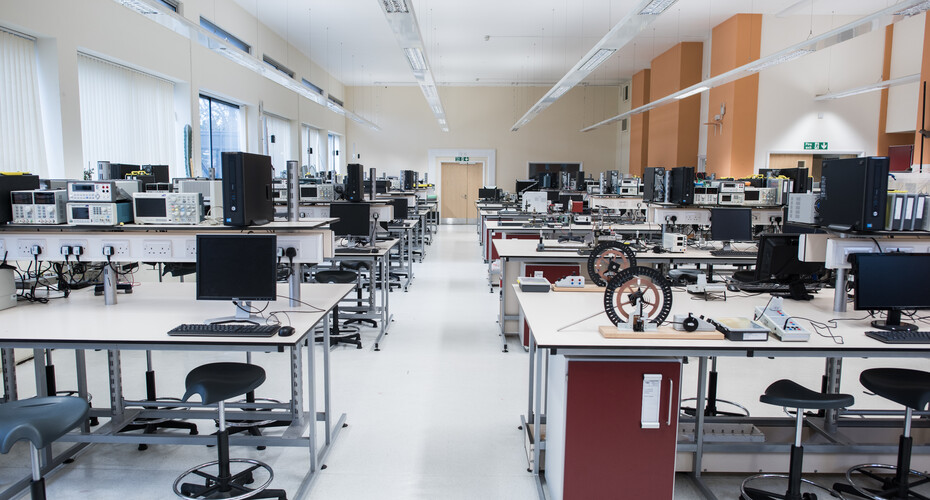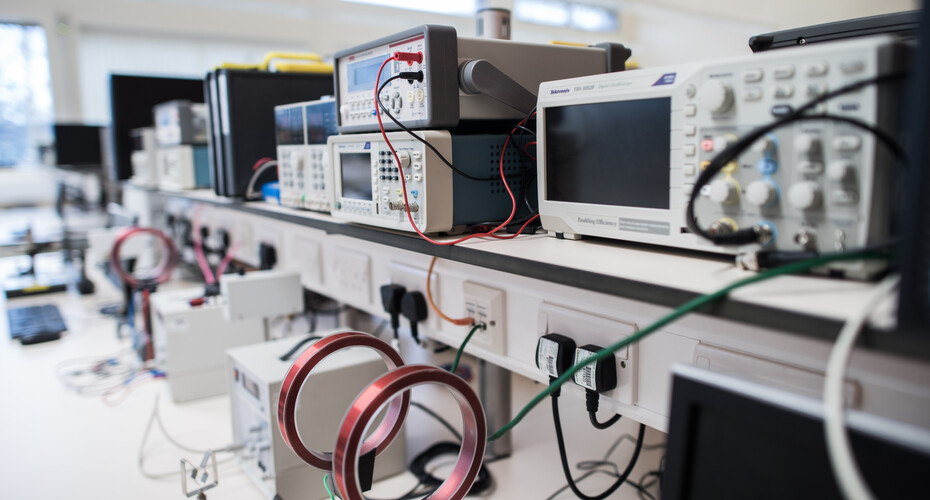Studying
"As a student at Exeter you will join the world-leading research activities of our groups at an early stage, stimulating the intellectual curiosity at the very core of our discipline.
A degree in Physics will expose you to a variety of fundamental concepts and techniques spanning a remarkably broad range, from the quantum behaviour at the sub-atomic scale to the structure of galaxies.
The beauty of studying Physics relies in mastering universal tools that can be applied to measure experimentally and understand theoretically the myriad of physical effects in the world around us."
Read more from Dr Eros Mariani
Dr Eros Mariani
Director of Education and Student Experience
Undergraduate study
Physics at the University of Exeter offers a vibrant, world-class environment for students interested in a diverse array of problems in the physical sciences, based on the spectacular Streatham campus.


Postgraduate study
Our world-leading research is embedded throughout our taught postgraduate programmes, exposing you to cutting-edge ideas across a broad range of experimental, computational, and theoretical physics.
Why Exeter?
Our degrees are designed to stimulate creativity, entrepreneurship, a global outlook, leadership, teamwork, analytical skills, resilience and imagination – all qualities employers are looking for.
Find out more
Detailed information for current students can be found on the Current students webpages. Module descriptors and programme specifications can be found on the Study Information webpages.
Quick links
Are you in Years 10-12 and want experience of university life?
In the Physics and Astronomy Department we do not run a work experience scheme but there are two schemes that the University of Exeter participates in.
Exeter Scholars
Exeter Scholars includes a range of activities and opportunities appropriate and provides an insight into university as well as a subject specific experience. Each Exeter Scholars pathway will consist of its own unique programme, including a number of exclusive supplementary activities that are available to all participants. Years 10-11 tutoring is open to students from schools who successfully applied to join this pathway.
For the Year 12 programme please visit this page to see the eligibility criteria.
In2ScienceUK
In2scienceUK was founded in 2010 by Dr Rebecca McKelvey, who aimed to provide young people from low-income and disadvantaged backgrounds an opportunity to gain practical insight into the STEM sector as well as the knowledge and confidence to progress to university. This scheme is for Year 12 students studying at least one STEM related A-Level, BTEC or equivalent. You must be aged 16 years old or over and currently attending a non-fee paying and non-selective state-maintained school.



